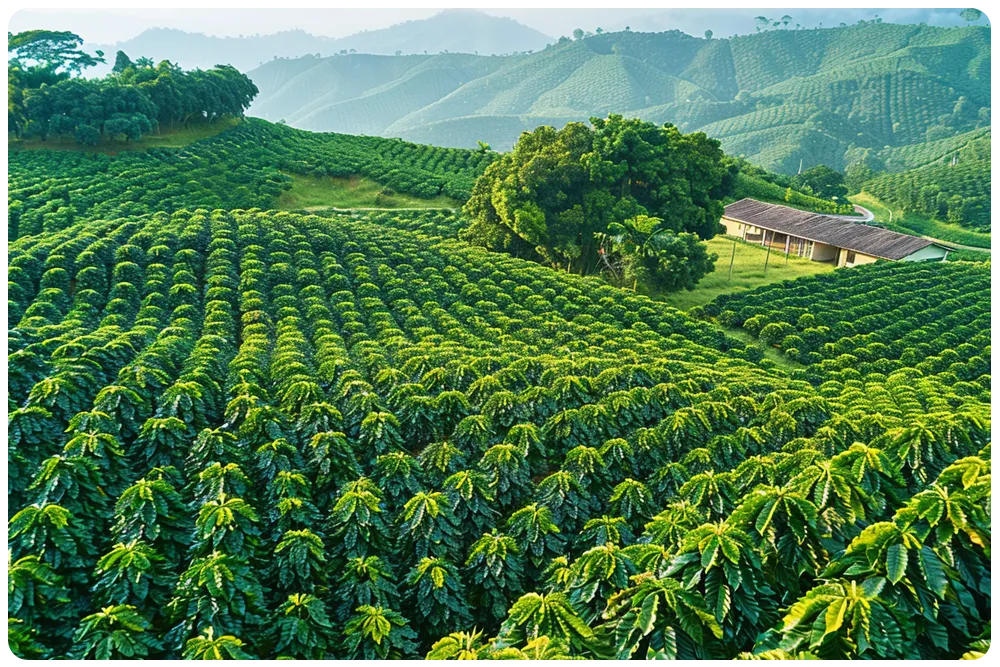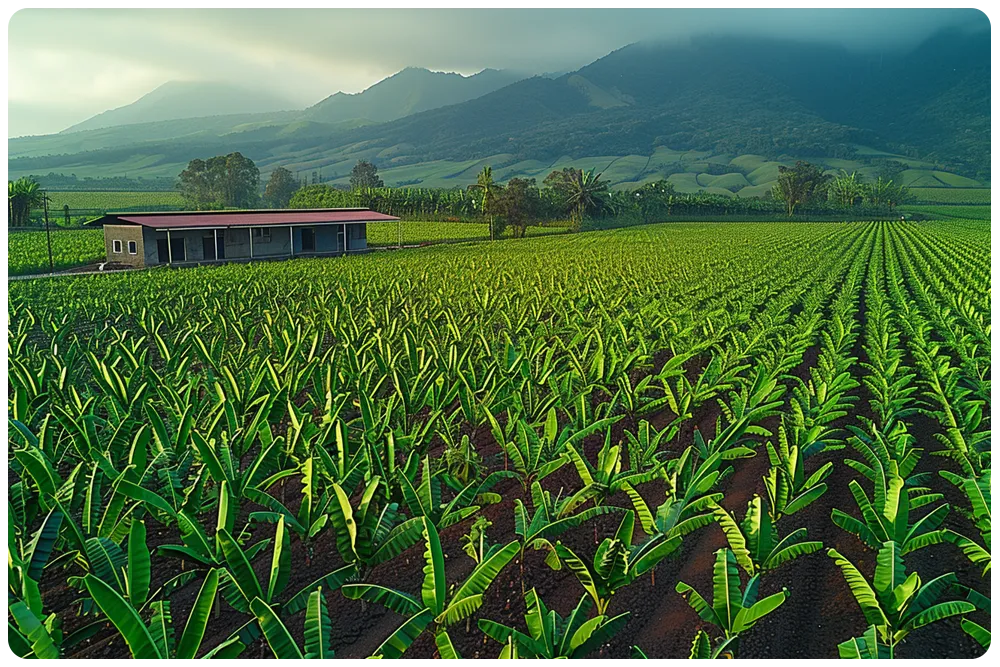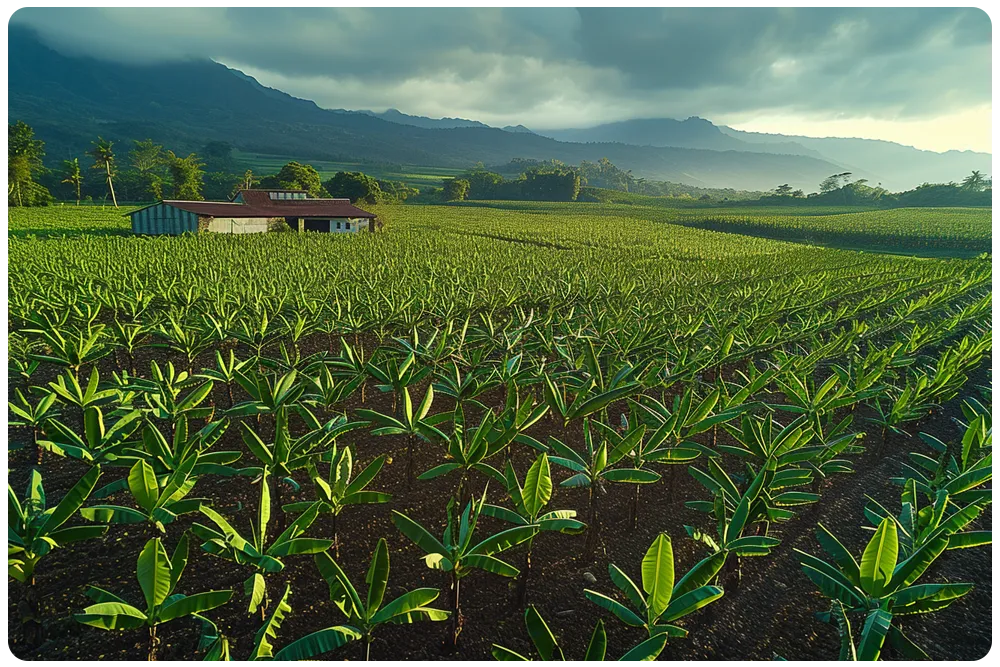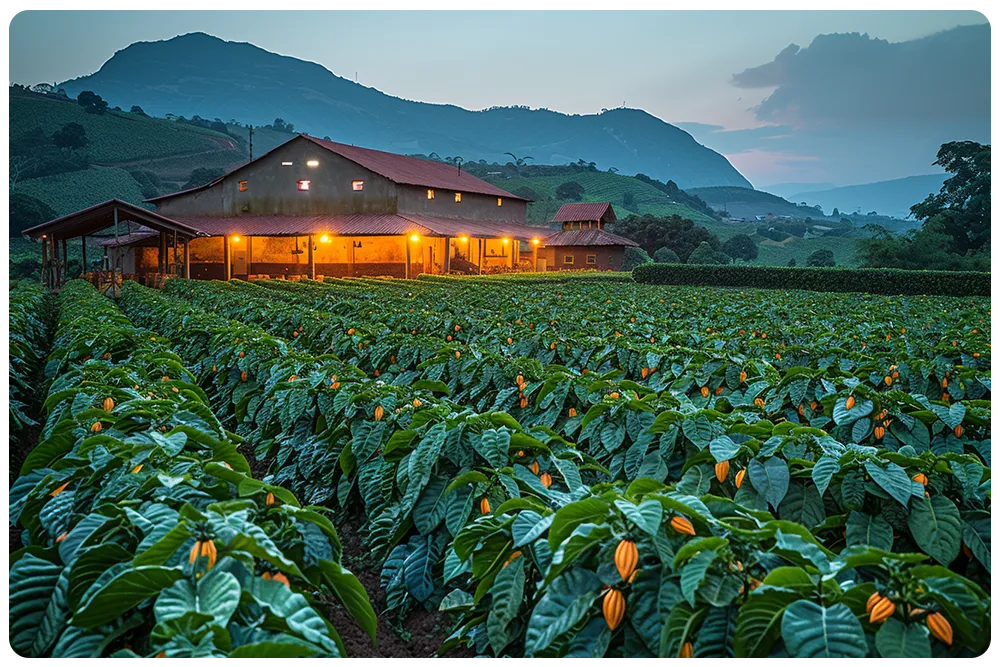Discover the strong influence of drones in advancing sustainable farming. Learn how the smart use of a drone can optimize crop growth and promote eco-friendly practices.
Welcome to Drone Farm
We offer a comprehensive range of agricultural drone services. With years of experience, we’ve harnessed our expertise to deliver high-quality services to our clients. Our team provides full support at every stage. Choose us for top-tier Drone Farming experiences!

Contents
- 1. How can drones enhance sustainable farming?
- 2. Drones prove efficiency in sustainable farming
- 3. Drones assist in achieving farming sustainability
- 4. What are the environmental impacts of drone farming?
- 5. Sustainable farming benefits from drone technology

1. How can drones enhance sustainable farming?
Enhancing Sustainable Farming with Agricultural Drones
When the conversation revolves around sustainable farming, the “UAV” or drone technology for agriculture plays a transformative role. Utilizing drone technology in the agricultural sector has the potential to boost crop health, optimize field management, and eventually foster agricultural productivity.
Below are key ways on how drones play a pivotal role in advancing sustainable farming practices:
- Improved Crop Monitoring: Drone makes it feasible for farmers to monitor extensive field areas swiftly. Efficient inspections of crops by a drone allow early detection of potential issues like pest attacks or crop diseases. This facilitates rapid and targeted intervention, minimizing damage, and promoting a healthier yield.
- Optimized Resource Use: Drones can generate detailed data and insights into crop health and field conditions. The collected data assists in precision agriculture, enabling farmers to apply fertilizers, pesticides, and water in exact required quantities. This approach reduces wastage, lowers environmental impact, and enhances sustainability.
- Damage Assessment: In the aftermath of natural disasters or severe weather incidents, drones can offer invaluable assistance. They enable quick on-ground reality assessments, helping farmers to make informed decisions and strategize recovery plans.
- Promotes Biodiversity: With the capacity to access hard-to-reach areas, drones can install and monitor birdhouses or other wildlife habitats. This encourages biodiversity, integral to a healthy ecosystem and sustainable farming.
From crop surveillance to resource management, drones reveal a novel avenue for agricultural efficiency, paving the way for more sustainable farming practices. Their role goes beyond simple farm management, extending their influence to biodiversity preservation and disaster mitigation. A drone is more than just a tool; it’s the future of sustainable agriculture.
2. Drones prove efficiency in sustainable farming
Drones Prove Efficiency in Sustainable Farming
The adoption of drone technology in agriculture is making significant strides in sustainable farming, revolutionizing traditional approaches, and introducing innovative solutions. Drones, the contemporary wizards of agriculture, are vital tools in ensuring not only the optimum crop health and productivity, but also in promoting environmental sustainability.
The Impact of Drone Technology on Farm Management
Drones represent the future of precision agriculture. They allow farmers to monitor their crops closely, identifying potential problems before they become severe. Advanced features such as infrared sensors and high-resolution cameras help in detecting early signs of crop illness, ensuring prompt and accurate treatment. The prompt detection and treatment of these issues help minimize crop loss and consequently secure higher yields.
Drones’ Role in Enhancing Agricultural Efficiency
Pest Control: Drones equipped with spray systems deliver a more accurate pesticide application, minimizing environment exposure and reducing the amount of chemicals needed for pest control.
Soil Analysis: Sophisticated drones can conduct in-depth soil analysis and provide accurate data about its nutrient content. This aids in efficient crop planning and irrigation methods.
Crop Monitoring: Drone surveillance compensates for the time-consuming task of manually checking a vast expanse of fields. Through timely detection of anomalies, a drone’s bird’s-eye perspective allows farmers to react rapidly and implement necessary management actions.
Water Conservation: An agricultural drone aids in identifying the specific portions of a field that need watering, enabling effective irrigation and conserving valuable water resources.
Conclusion
In essence, drone technology’s fusion in agriculture is transforming farms into more efficient and sustainable systems. The potential of drones in enhancing farming practices while minimizing environmental impact is groundbreaking. Indeed, these advanced tools serve as a testament that technology and nature can co-exist to give us a greener and more sustainable future.
Always remember, a drone isn’t merely a tool; it’s a farmer’s companion in achieving sustainable and profitable farming. The possibilities are endless with the drone, driving agriculture towards the path of sustainable advancement.

3. Drones assist in achieving farming sustainability
Drones assist in achieving farming sustainability
In today’s agricultural landscape, drone technology is a game changer, given its profound ability to contribute to sustainable farming practices. Offering unprecedented precision and management capabilities, drones fundamentally enhance operational efficiency in agriculture.- Optimization of Crop Production: A drone’s sophisticated aerial imaging technology allows for timely and meticulous assessment of crop health. With this critical insight, farmers can promptly address any signs of crop stress or disease, ensuring higher yields and minimal wastage.
- Improved Farm Management: Tracking field conditions accurately is vital for sustainable farming. Drones make this task manageable by generating detailed aerial maps. These maps assist farmers in making informed decisions regarding pest control, irrigation, and crop rotation – all key to sustainable farming.
- Detection of Plant Disease: Drones equipped with multispectral sensors can detect the onset of crop disease long before it’s visible to the naked eye. The earlier the detection, the better the chances of mitigating the spread and impact, thus maintaining crop health and productivity in a sustainable manner.
- Efficient Use of Resources: Drones enable precision agriculture, where resources like water, fertilizers, and pesticides are applied exactly where needed, and in the right quantities. This not only minimizes waste but also mitigates harmful environmental impact.
4. What are the environmental impacts of drone farming?
Understanding the Environmental Impacts of Drone Farming
Drones, also known as Unmanned Aerial Vehicles (UAVs), have been transforming diverse sectors with agriculture experiencing considerable benefits from this high-tech innovation. The environmental implications of drone usage in farming are manifold and worth examining in detail.- Optimal Resource Utilization: A solitary agricultural drone has the ability to closely monitor large farms, assessing various elements, including soil condition, plant health, and irrigation needs. As a result, farmers have more precise data regarding where to disperse resources, minimizing wastage, and reducing the overall environmental footprint.
- Improved Pest and Illness Control: The early identification of crop illnesses aids in limiting the spread of diseases and pests. With high-resolution imaging, a drone can swiftly identify affected crops before the illness can cause widespread damage, protecting healthy plants without excessive pesticide use—contributing to a healthier environment.
- Climate Change Mitigation: Modern precision farming techniques, such as drone technology, promote climate-smart agriculture by reducing greenhouse gas emissions. The minimization of chemicals and fertilizers, combined with lesser fuel consumption, leads to a significantly reduced carbon footprint.
- Promotion of Sustainable Practices: As an excellent tool for precision agriculture, the drone enhances the farming initiatives aligning with environmental sustainability. Better crop management, minimal resource wastage, and increased efficiency all cascade into sustainable, eco-friendly agricultural practices.


5. Sustainable farming benefits from drone technology
Sustainable Farming Benefits from Drone Technology
Agriculture, as one of the world’s oldest professions, has perpetually evolved through technological advancements, and the introduction of drone technology in farming is a clear demonstration of this progression. Let’s delve into how drone technology propels sustainable farming.
Drone technology, in the sphere of agriculture, optimizes crop production, and enhances precision in farm management
- Efficiency in Crop Monitoring: A drone’s aerial perspective offers a comprehensive inspection of farmlands that’s far more efficient than manual methods. As a result, farmers can identify problematic areas in real time, allowing for accurate interventions.
- Precision Irrigation: Drones fitted with thermal sensors can identify irrigation irregularities, helping farmers to conserve precious water resources.
- Disease Detection: Early discovery of crop illness is critical to minimize loss. Satellite imagery combined with drone technology can provide high-resolution data to spot diseased crops at the earliest stages.
Investment in a drone can therefore increase crop yield, reduce wastage and contribute to agricultural sustainability. By integrating drone technology, farmers can effectively safeguard their land, crop, and resources, propelling a more sustainable future for agriculture.